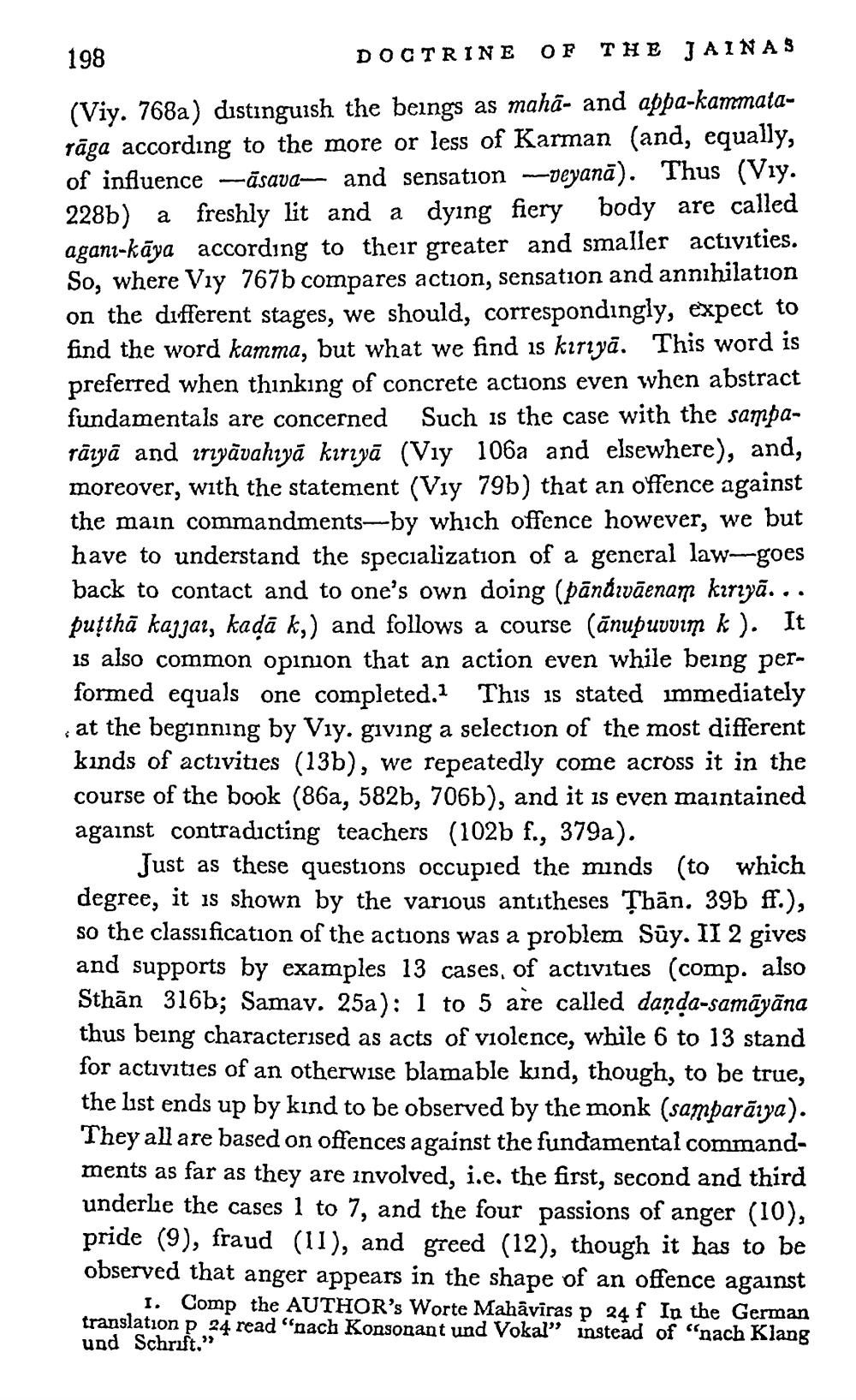________________
198
DOCTRINE OF THE JAINAS (Viy. 768a) distinguish the beings as mahā- and appa-kammatarāga according to the more or less of Karman (and, equally, of influence --āsava and sensation --deyanā). Thus (Viy. 228b) a freshly lit and a dying fiery body are called agani-kāya according to their greater and smaller activities. So, where V1y 767b compares action, sensation and annihilation on the different stages, we should, correspondingly, expect to find the word kamma, but what we find is kiriyā. This word is preferred when thinking of concrete actions even when abstract fundamentals are concerned Such is the case with the sampatāryā and iriyāvahiyā kırıyā (Viy 106a and elsewhere), and, moreover, with the statement (V1y79b) that an offence against the main commandments—by which offence however, we but have to understand the specialization of a general law-goes back to contact and to one's own doing (pāntivāenam kariyā. . . putthā kajjai, kadā k,) and follows a course (änupuvvim k ). It is also common opinion that an action even while being performed equals one completed. This is stated immediately at the beginning by Viy. giving a selection of the most different kinds of activities (13b), we repeatedly come across it in the course of the book (86a, 582b, 706b), and it is even maintained against contradicting teachers (102b f., 379a).
Just as these questions occupied the minds (to which degree, it is shown by the various antitheses Thān. 39b ff.), so the classification of the actions was a problem Sūy. II 2 gives and supports by examples 13 cases, of activities (comp. also Sthân 316b; Samay. 25a): 1 to 5 are called daņda-samāyāna thus being characterised as acts of violence, while 6 to 13 stand for activities of an otherwise blamable kind, though, to be true, the list ends up by kind to be observed by the monk (samparāiya). They all are based on offences against the fundamental commandments as far as they are involved, i.e. the first, second and third underlie the cases 1 to 7, and the four passions of anger (10), pride (9), fraud (11), and greed (12), though it has to be observed that anger appears in the shape of an offence against
1. Comp the AUTHOR's Worte Mahäviras p 24 f In the German translation p 24 read 'nach Konsonant und Vokal" und Schrift.”
instead of "nach Klang




